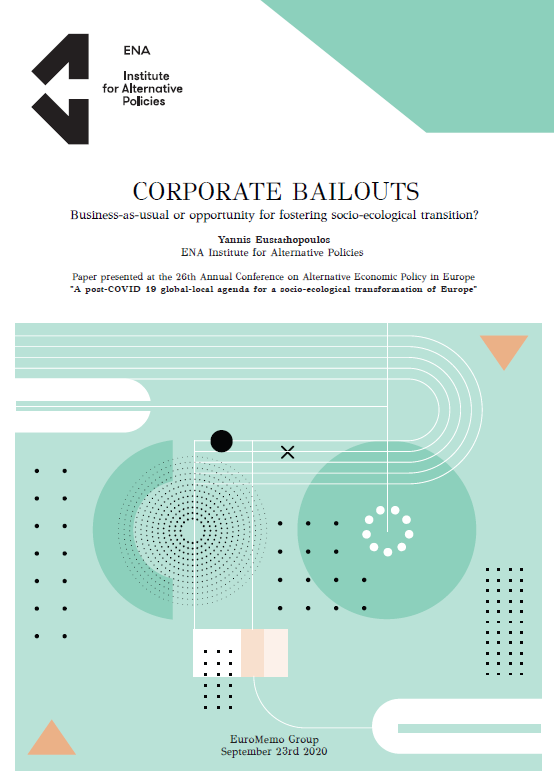Corporate Bailouts
by: Yannis Eustathopoulos
September 2020
Business-as-usual or opportunity for fostering socio-ecological transition? The economic impact of the pandemic has revived the discussion on bailouts of distressed firms whose solvency is at risk. To date, interventions by public authorities have focused on maintaining adequate liquidity levels in the business sector through guarantees, loans, moratorium of obligations and postponement of insolvency proceedings. Both European countries and the US, however, have already completed bailouts, which comprise equity capital injection, mainly in the air transport sector. These individual cases are considered to be early signs of an expected increase of companies that will need capital support during next months. Many analysts foresee the necessity to inject significant financial resources in order to prevent the risks of a major solvency crisis leading to mass bankruptcies. Overall, two competing approaches of bailouts can be distinguished in the public discussion: • The “business-as-usual approach” advocates a short-term and neutral intervention of the state in companies based on the experience of the recapitalisation of financial institutions during the financial crisis of 2008-2009 • The “progressive approach” sets clear criteria and conditionalities. Current circumstances are considered as an opportunity for public authorities to actively support and monitor the socio-ecological transformation of businesses into resilient, sustainable and knowledge-intensive activities. * Paper presented at the 26th Annual Conference on Alternative Economic Policy in Europe “A post-COVID 19 global-local agenda for a socio-ecological transformation of Europe”, EuroMemo Group, 23 September 2020.
Download
